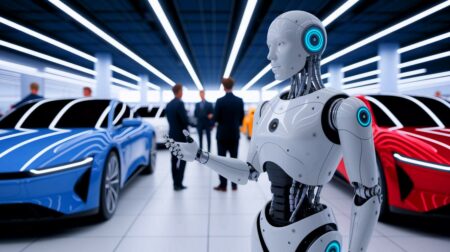| IN A NUTSHELL |
|
In recent years, the concept of high-speed travel has seen numerous innovations, and one of the most exciting developments is the Hyperloop system in China. This ambitious project could revolutionize the way we travel, offering speeds comparable to airplanes. As the world eagerly watches, several questions arise about its feasibility and potential implications. The results of this groundbreaking project could reshape our perceptions of transportation, setting new standards for speed and efficiency.
An Unprecedented Technological Feat
The recent full-scale test of China’s Hyperloop magnetic levitation (maglev) system marked a significant milestone in transportation innovation. Conducted in a two-kilometer-long tube, this test assessed the integration of various train systems. Although the precise speed achieved remains undisclosed, developers are confident that the outcomes meet their expectations. The successful testing of technologies like magnetic levitation navigation control underscores the project’s potential. As these technologies continue to evolve, they could redefine what we consider possible in ground transportation.
With this achievement, China has positioned itself as a leader in cutting-edge transport solutions. The Hyperloop’s promise of rapid, frictionless travel could lead to a transformative shift, with implications far beyond China’s borders. As other nations look on, the pressure mounts to develop similar systems, pushing the boundaries of innovation further.
The Ambitious Goals of the Project
The engineers behind China’s Hyperloop are aiming to create a system where trains can “fly on the ground” at speeds akin to those of airplanes. This ambitious endeavor is a collaborative effort between the Shanxi provincial government and the China Aerospace Science and Industry Corporation (CASIC). The rapid construction of the test line in Datong, spanning from April 2022 to November the following year, highlights the project’s urgency and potential impact.
Although the exact speed record remains undisclosed, developers claim the test achieved a new benchmark. This suggests that the Hyperloop could soon become a vital part of China’s transportation infrastructure. With such bold goals, the project not only aims to connect major cities but also to revolutionize the way we perceive travel, offering a glimpse into a future where distance is less of a barrier.
A Promising Yet Uncertain Future
The Hyperloop’s potential to connect Chinese megacities and dramatically reduce travel times is undeniable. For instance, the trip between Beijing and Shanghai could be cut to just 90 minutes. By using magnetic levitation to eliminate friction and operating in a low-pressure tube to minimize air resistance, the Hyperloop could revolutionize rail transport. However, despite its promise, challenges remain in scaling the project and addressing economic implications.
| 🌟 Progress | Successful Full-Scale Test |
|---|---|
| 🏗️ Construction | Started in April 2022, Completed in November |
| 🚄 Speed | Exact Speed Not Revealed, but Meets Expectations |
| 📍 Location | Datong, Shanxi Province |
The official reports highlight the Hyperloop’s potential to swiftly connect multiple Chinese megacities. However, the success of this project could define the future of high-speed transport. Will China overcome the challenges and turn this vision into a reality?
The Hyperloop project stands as a testament to human ingenuity and ambition, representing a giant leap toward the future of travel. As the world watches China’s progress, the potential for similar innovations globally increases. Yet, the underlying question remains: can such a transformative project be sustainably implemented on a large scale? What might this mean for the future of transportation and our planet’s connectivity? The answer could redefine our approach to global travel. What do you think the future holds for high-speed transportation?
Did you like it? 4.5/5 (24)








Wow, 620 MPH! That’s faster than a plane! When can we ride it? ✈️
Great news for transportation, but what about the environmental impact? 🌍
Will this be affordable for everyday people, or just the wealthy? 🤔
Just wait until the food cart comes by at 620 MPH! 😂
China’s leading the way again! Impressive progress. 👏
Is it safe to travel at such high speeds?
620 MPH? What happens if you miss your stop? 🚀
Sounds amazing, but how long before this is a reality everywhere?
How does it compare cost-wise to traditional rail systems?